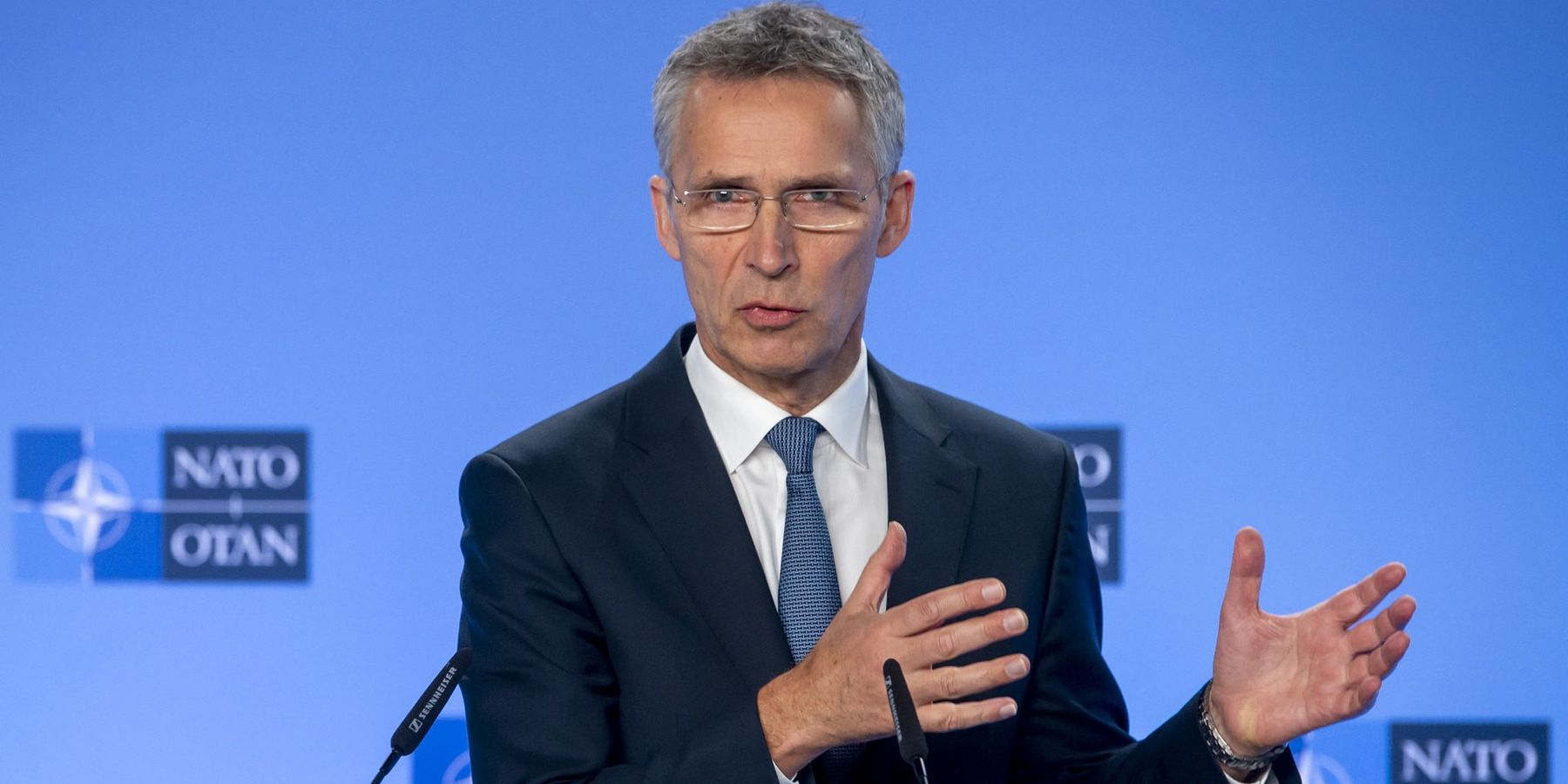In an interview with Foreign Policy on Monday, outgoing NATO Secretary General Jens Stoltenburg doubled down on his hawkish outlook toward Russia.
Stoltenberg, who has been NATO chief since 2014 and will be replaced by former Dutch Prime Minister Mark Rutte in October, indicated that Since North Korea, China, and Iran have been supporting Russia in its conflict with Ukraine, that NATO should work more closely with its allies in the Asia-Pacific region.
He added:
“North Korea is providing an enormous amount of, in particular, ammunition to Russia. And a lot of that is transported on railroad, railroad which is crossing the border from North Korea, the land border, into Russia, and then all the way to the frontlines, and that capacity is quite huge to transport by railroad, and that's also reason why it is important to continue to have severe sanctions on North Korea, and also reason why NATO has stepped up further the cooperation we have with our Asia Pacific partners, that includes South Korea, Japan, Australia, and New Zealand.”
When interviewer Ravi Agrawal, Editor-in-Chief of Foreign Policy, mentioned the potential for NATO overextension and that sanctions have not historically worked, Stoltenberg replied, “so while NATO is a regional alliance, we need a global approach, and that includes also our approach to China. Because again, the war in Ukraine demonstrates that our security is not regional. Our security is global.”
He then added, “what happens in Asia matters for Europe. What happens in Europe matters for Asia. Or, as the Japanese Prime Minister said recently, that what happens in Ukraine can happen in Asia today can happen in Asia tomorrow.”
He also pushed the narrative that China and Russia were closer than ever "That's not because NATO has pushed them together," he charged, "It's because they align in standing of what they believe in a different world order.”
Because of this, Stoltenberg said he believes that increased sanctions are necessary.
This narrative should be challenged, said Mark Episkopos, Eurasia fellow at the Quincy Institute. “Stoltenberg’s comments reflect the catechistic view — one that stubbornly persists even in the lack of any corroborating evidence — that “Dragonbear,” or the Sino-Russian axis against the West, is the inevitable result of what he and others see as an global, predetermined conflict between the two incompatible poles of democracy and authoritarianism.”
“In fact, this convergence is the result of concrete choices made by Western policymakers since the end of the Cold War,” he added. “The Western maximum-pressure campaign against Russia after 2022 has failed in its basic purpose of compelling Moscow to relent its invasion of Ukraine, but it has successfully severed Russia from the Western economic and political sphere in a way that greatly increased its commercial and diplomatic dependence on China.”
Meanwhile, Stoltenberg said he strongly supports Ukraine using long range missiles to fire into Russian territory, stating that they were imperative if Ukraine was to take out Moscow’s artillery positions.
When questioned whether this could potentially push President Putin into using nuclear weapons, the NATO chief seemed to suggest that Putin would not act and therefore the West could keep pushing. “We are monitoring and tracking very closely what Russia is doing,” he said, however, “so far, we haven't seen any changes in their nuclear posture that require any changes from our side.”
The unfortunate reality is that when a party chooses to utilize nuclear arms, escalation is hard to manage.
What about Ukraine’s possible NATO membership? Stoltenberg said the process to join has been streamlined, with Ukraine no longer having to submit a Membership Action Plan, and is now awaiting a formal invitation. No timeline was given — but the outgoing NATO chief was quick to highlight how integrated the alliance and Ukraine were becoming.
He touted the fact that Ukrainian forces are being integrated into NATO standards, training command facilities are getting set up in Poland and Germany, and the establishment of the NATO Ukraine Council, which is, according to NATO “the joint body where Allies and Ukraine sit as equal participants to advance political dialogue, engagement, cooperation and Ukraine’s aspirations for membership in NATO. It provides for joint consultations, decision-making and activities. It also serves as a crisis consultation mechanism between NATO and Ukraine.”
He also reiterated that Ukraine’s path to NATO was “irreversible.”
- This week, NATO III celebrates itself ›
- I was there: NATO and the origins of the Ukraine crisis ›
- NATO takes the plunge into the word of venture capital | Responsible Statecraft ›
















